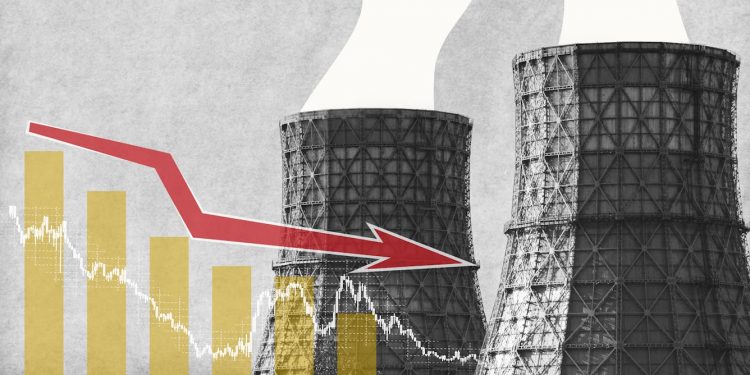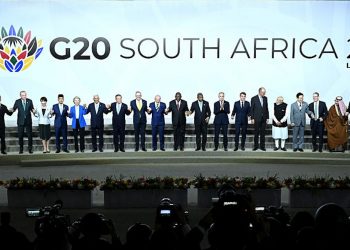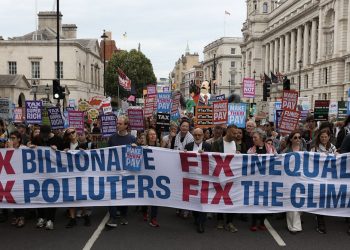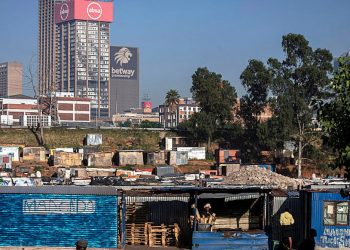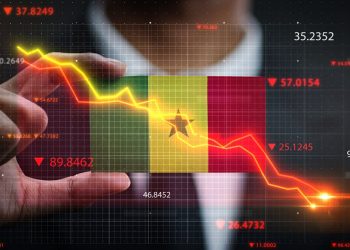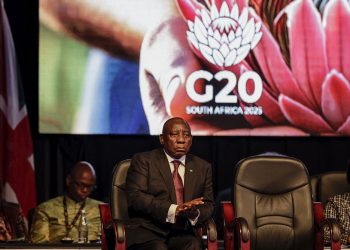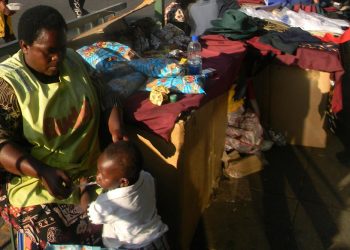African sovereign debtors in distress face terrible choices. They are often forced to choose between fully paying their creditors and financing the needs of their populations – health, education, renewable energy, water. Discussions with their creditors focus on financial, economic and contractual issues. The environmental and social impacts of their situation are largely excluded from negotiations.
Thanks to the initiative of some Vanuatan law students, this may be about to change.
Vanuatu is a country consisting of small islands in the south Pacific. It has been ranked as one of the countries most affected by climate change, facing threats of rising sea levels and storm surges.
In 2019, a law professor in Vanuatu, Justin Rose, asked his students to propose ways to deal with the climate threat confronting their country.
They suggested that Vanuatu ask the United Nations general assembly to request an advisory opinion from the International Court of Justice on the international legal obligations of states regarding climate change. They convinced their government to adopt their proposal. They also mobilised international support, saying they wanted to take the world’s biggest problem to the world’s highest court.
In 2023, the UN general assembly agreed to seek the International Court of Justice’s advice on the following two issues:
-
the obligations of states under international law to protect the environment from the impact of human-caused greenhouse gas emissions
-
the legal consequences for states if they fail to meet these obligations and thereby cause significant environmental harm for present and future generations.
The case attracted unprecedented attention. The court received over 150 written submissions. Over 100 states and international organisations made oral presentations in nine days of public hearings. On 23 July 2025, the International Court of Justice issued a unanimous advisory opinion. It was only the fifth time in its nearly 80-year history to do so.
The court’s opinion was that the obligations of states extend beyond the treaties they have signed and ratified. They also include obligations arising from customary international law. This is the law that states practise out of a sense of legal obligation. It is binding on all states and international organisations, regardless of whether they have signed any applicable treaty.
The rules that matter
The court declared that there are two relevant customary international legal obligations.
The first is a duty to prevent significant harm to the environment. This requires states to exercise due diligence before acting in ways that could cause environmental damage. They must assess both the probability of causing serious harm and the likely extent of any expected impacts.
In making these assessments, states must take into account current binding and non-binding international standards. It also requires states to ensure that companies and individuals subject to their jurisdiction comply with these duties.
The second is a duty to cooperate with other states to protect the environment and to help solve international problems of an economic, social, cultural or humanitarian nature. Here, the court opined that a healthy environment is a pre-condition for the enjoyment of human rights. It affects the rights to life, health and livelihoods, and the rights of children, women and indigenous people.
The court, in discussing the second issue, advised that states can be held legally responsible if they do not take all measures within their power to prevent significant environmental harm. It noted that while all states have this duty, its precise contents will vary depending on their capabilities. The critical factor is the effort the states make and not the results they produce.
The debt angle
Although the court’s opinion is only advisory, it is likely to be highly influential. It was informed by a wide range of submissions. It was a unanimous decision of 15 judges who come from 15 countries.
The fact that the court grounded its decision, in part, on customary international environmental and human rights grounds means that it has implications for any state actions that can have significant adverse impacts on climate, the environment and customary human rights.
My work as an international lawyer working on sovereign debt and development finance convinces me that this includes the renegotiation or restructuring of African debt.
Whatever action African sovereign debtors take to deal with their debt crisis will affect their ability to manage their greenhouse gas emissions. It will also affect their ability to deliver on their obligations to their citizens’ rights. These include the rights to life, health and livelihoods.
This suggests that African sovereign debtors and their creditors need to understand the environmental and climate impacts of their transactions.
They must also work together to resolve their transactions’ negative environmental, social, economic and cultural impacts. Their respective responsibilities will differ depending on their capabilities.
The International Court of Justice opinion may therefore offer new opportunities to make debtor and creditor states, and creditor institutions, accept responsibility for the environmental and social impacts of their actions.
Three possible avenues for relief
There could be at least three ways to relate the climate opinion to debt.
First, the debtor and its stakeholders can use the decision to bolster their arguments for including the environmental and social impacts of debt in their negotiations. They can point out that the debtor state cannot avoid international legal responsibility for the effects of the transaction on its greenhouse gas emissions and on the human rights of its citizens.
They can also point out that its creditors and their home states also have a legal obligation to assess these impacts and cooperate in managing them.
Second, the stakeholders can remind both the sovereign debtor and its creditors about the content of their international legal responsibilities. There are international norms and standards that can help establish that content.
Some of them are:
-
the UNCTAD Principles on Promoting Responsible Sovereign Borrowing and Lending
-
the OECD Principles of Responsible Conduct for Multinational Enterprises
In addition, there are many private financial institutions that have human rights and environmental and social policies that often specifically refer to these international standards.
Third, drawing inspiration from the Vanuatu law students, activists around the world can use the judgment to strengthen their arguments. They can say that creditor and debtor states have an international legal duty to prevent significant harm to the environment and to cooperate to protect the environment. This duty extends to ensuring that companies and individuals subject to their jurisdiction act in conformity with these duties. They can be held legally responsible for failing to comply with these duties.
Finally, there are international mechanisms that non-state actors can use to hold debtors and creditors accountable for failing to perform their duties. These include the National Contact Points. These exist in each state that has signed on to the OECD Principles of Responsible Conduct for Multinational Enterprises. Another possibility is the independent accountability mechanisms in the multilateral development banks.
There are also the courts in the growing number of states in which governments, central banks and private actors have been sued for violating their obligations to climate change.
States and financial institutions, of course, can avoid these consequences by respecting the court’s opinion and developing ways of managing African sovereign debt that comply with its international legal advice.
Danny Bradlow, in addition to his position at the University of Pretoria is Senior G20 Advisor to the South African Institute of International Affairs, a Compliance Officer in the Social and Environmental Compliance Unit of UNDP and a Senior Non-Resident Fellow in the Global Development Policy Center, Boston University.

